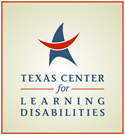Description
The goal of this study was to evaluate the extent to which training that emphasizes the process of executive function (EF) and self-regulated learning (SRL) would result in increased reading comprehension; the authors also evaluated interrelationships of EF, SRL, and reading. They report an experiment (N = 75 fourth-graders) that contrasted two researcher-implemented conditions (text-based reading [TB] and text-based reading plus executive function [TB+EF]) to a control. They also evaluated relationships among measures of SRL, EF, and reading. Both the TB and TB+EF groups outperformed the control group for proximal text comprehension (where the topic was similar to that covered in training) and background knowledge related to it, but the two researcher-led groups performed similarly. There were no significant differences for less proximal text, and again similar performance for both TB and TB+EF. Correlations among measures were weak in general, although the pattern was similar to that found in the extant literature. The findings speak to the difficulty in separating these components from those of strong instruction more generally. The relationships of these constructs to reading comprehension will likely be enhanced by more sensitive measurement of EF and reading comprehension, particularly where tied to active treatment components.
Citation
Cirino, P. T., Miciak, J., Gerst, E., Barnes, M. A., Child, A., & Huston-Warren, E. (2016). Executive function, self-regulated learning, and reading comprehension: A training study. Journal of Learning Disabilities, 50(4), 450-467. doi:10.1177/0022219415618497
